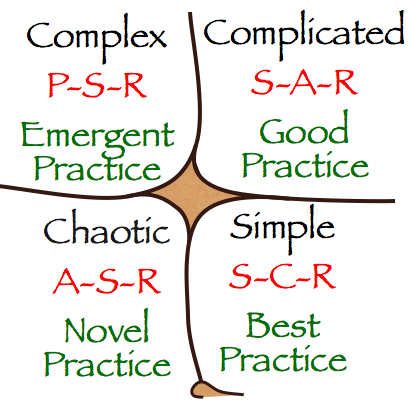Meaningfully using Agile Methods and an Agile Mindset in Controlling

Cynefin Framework by Dave Snowden
Individuals and interactions instead of processes and tools. Responding to change instead of following a plan. Even just those two basic values from the Agile Manifesto likely cause a sense of unease in many controllers. They seem too radical and too far away from daily controlling practice. Is it not precisely the accuracy of the planning, that marks the quality of the controlling? What happens when adhering to the plan is not required anymore? Is controlling redundant then?
Almost 20 years after publishing the Agile Manifesto (cf. Beck et al, 2001), agile practices are as relevant as ever. It seems as if agility is a key criterium for the long-term success of companies and drivers of innovation. Why is that? And how can agility be implemented in controlling in a meaningful way that brings added value for controllers and companies both?
In an article worth reading from Controller Magazin, the authors address this question and document in the first part of their series how agile methods and an agile mindset can be used sensibly in controlling. For example, Prof. Dr. Ulrich Egle professor for Controlling and Digital Transformation at the Institute for Financial Services Zug IFZ of the Lucerne University of Applied Sciences and Arts – Business shows what agility means using the Cynefin Framework. A method and a topic that we will also discuss in detail with the experts at our Live Online Symposium on Corporate Planning on June 24 and 25, 2021.
An interim conclusion: agility offers controlling the opportunity to meet the challenges of the VUCA world. The establishment of the agile mindset and the targeted use of agile methods brings relevant topics to the fore and enables controlling to act quickly and flexibly.



